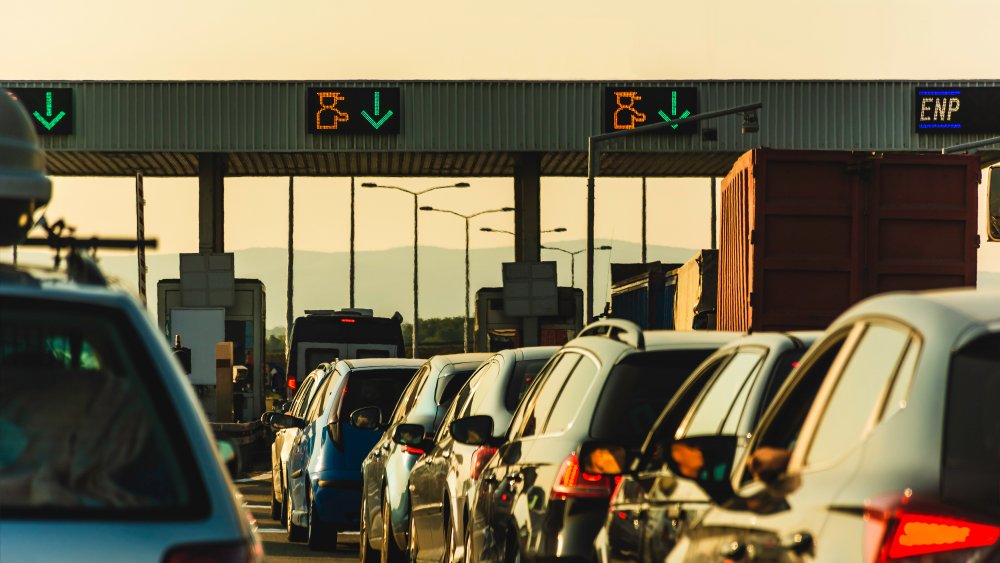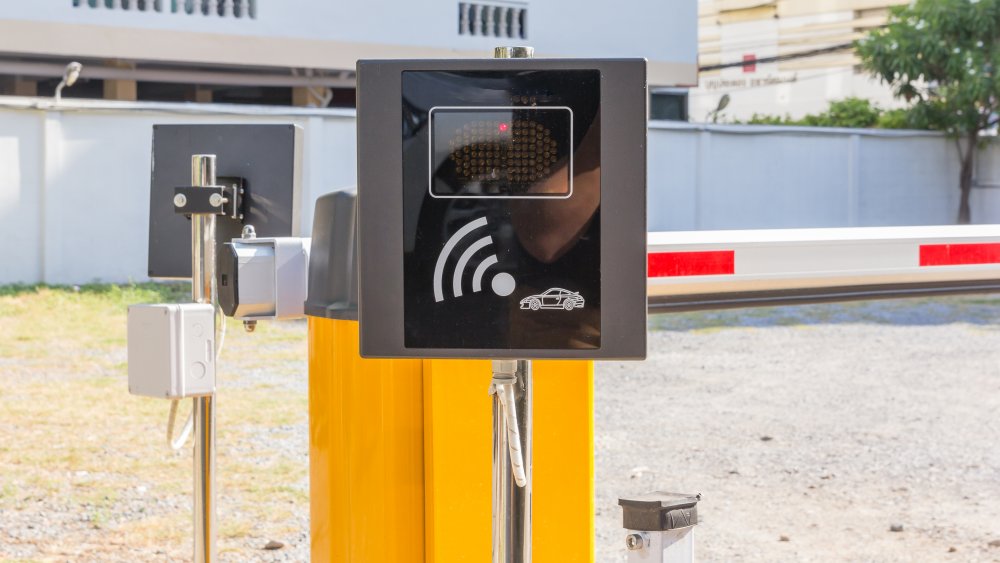Here's How Much Toll Booth Operators Really Get Paid
Toll Collectors, the actual people and not the automated machines, don't tend to come across as sympathetic to most car drivers. "Why do toll takers make so much money?" Jeff from Marshfield asked CBS Boston in 2010. "Why are toll operators so lackadaisical?" wonders Penelope from Boston. What do people mean by "make so much money"? According to Shmoop, the average toll collector can expect to make $34,000 per annum, while payscale.com estimates $12.07 per hour, which if you assume a 40 hour week for 52 weeks a year, results in $25,105.60 per year.
It's not necessarily fun work, either. Job Monkey doesn't classify toll collecting under "The coolest jobs on Earth." Toll collectors spend eight-hour shifts sitting in a cramped box taking cash and making change for drivers. Worse, as Mike Cullen explained to CBS Boston, the environment takes a toll on their health: "I feel, like when a truck and a bus come through, that I've smoked a pack of cigarettes." Or, as Wanda Milliner explains to Forbes, the people themselves can wear you down. Drivers are often disproportionately rude to the person trying to make a living: "I can't go straight into my lane because I'm dealing with so many personalities, so I take an hour to pray and prepare for the day." These aggressive personalities can include flashers, very argumentative customers, and very, very rarely, robberies.
The toll of technology
Such complaints aren't destined to last much longer, however, as highways are seeing an ever-increasing number of automated toll booths like E-ZPass. Even more common are scanners that don't require the car to stop. The general argument, as given by Governing, is that it improves safety and the traffic flow while also saving taxpayers money and cutting down on fuel consumption.
For some toll collectors, the change won't hurt too much. In 2019, Rochester, New York released an announcement outlining their plan for the future of the toll collectors who would be made redundant. It would include "a detailed outreach program including dedicated resources to connect all impacted toll employees with future professional career opportunities and potential career paths." That's for the lucky ones. Other toll collectors, like the ones highlighted by Governing in New Jersey, will be privatized instead. They will be allowed to keep their jobs only if they take a $16,000 salary cut.
One way or the other, things are changing. At one point, New Jersey had 2,000 full-time collectors. Now only 900 are full time, with an additional 450 working part-time. It seems that Jeff and Penelope will have their way in the end.

